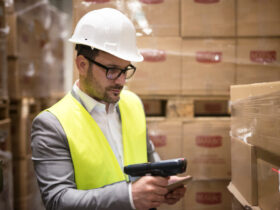Numerous methods and pursuits fall under the umbrella of sustainability consulting, but all share a common goal: aiding businesses in “going green” by maximizing profits and reducing waste. Depending on the specifics of the project at hand, sustainability consulting duties may vary from one assignment to the next.
From What Parts Of The World Do Sustainability Consultants Often Emerge?
Project managers, engineers, and inspectors are just a few examples of the many different backgrounds from which green consultants from. They provide companies and communities unbiased advice on how to improve their sustainable practices. Despite this, they are united in their dedication to environmental stewardship’s ultimate goal: meeting the demands of the present without jeopardizing the sustainability of the resource base for the foreseeable future.
The United States Bureau of Labor Statistics classifies them as “environmental professionals” under the field of “management, scientific, and technical consulting services.” Working in tandem with project developers, builders, architects, and engineers throughout the whole building process, they formulate strategies and focus project requirements on environmentally responsible and resource-efficient practices. This aids their efforts to create eco-friendly, resource-conserving neighborhoods and buildings. They focus on improving the well-being of both their immediate neighborhood and the surrounding ecosystem in an effort to reduce their global environmental impact. This is achieved through reducing energy use and water use, as well as pollution and garbage production.
Nonetheless, the following are some of the more common responsibilities of eco-experts:
- Checking energy consumption
- Data collection and analysis, needs identification, and strategy formulation are all components of the process.
- Meeting management, report writing, and presentation preparation
- Putting out initiatives to encourage environmental protection
- Methods of reducing energy use that may be identified and explored
- Several non-conventional energy sources are used.
- Simplifying supply chains (which will make cargo travel more efficient and less harmful to the environment)
- One of our main objectives is to discover novel means of waste reduction.
- Taking stock of a company’s influence on its employees, clients, and neighbors is what is meant by “assessing corporate responsibility.”
- Maintaining a safe and healthy workplace and surrounding community.
Educational Background of the Sustainability Consulting Experts
Experts in this field often have a similar educational background in environmental studies, earth science, or environmental science. Experts in the environment may also be shown to have expertise in the following areas:
- Analytical thinking
- Getting everything straightened out
- Knowledge and skills in computers and technology are shared.
Sustainability consultants aid municipalities in accomplishing their sustainability goals via the use of cutting-edge technology and a community-centric approach. This strategy also opens up fresh opportunities for commercial expansion.
Conclusion
In a nutshell, they impart theoretical understanding and hands-on experience in order to build “smart cities” via the mitigation of threats and maximization of benefits in the areas of environment, economy, and society; the strengthening of institutions; the generation of economic value; and the promotion of healthy ecosystems and robust communities. By balancing potential threats and benefits across several dimensions like environmental, economic, social, and organizational, smart cities may be built.











